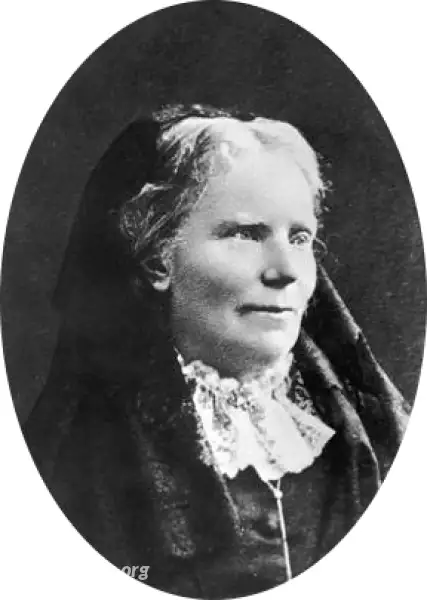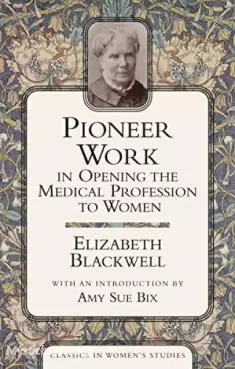
Timeline
Title
Country/Nationality
Elizabeth Blackwell
Elizabeth Blackwell was a British physician, notable as the first woman to receive a medical degree in the United States, and the first woman on the Medical Register of the General Medical Council for the United Kingdom. Blackwell played an important role in both the United States and the United Kingdom as a social awareness and moral reformer, and pioneered in promoting education for women in medicine. Her contributions remain celebrated with the Elizabeth Blackwell Medal, awarded annually to a woman who has made a significant contribution to the promotion of women in medicine.
Elizabeth was born on 3 February 1821, in Bristol, England, to Samuel Blackwell, who was a sugar refiner, and his wife Hannah (Lane) Blackwell. She had two older siblings, Anna and Marian, and would eventually have six younger siblings: Samuel (married Antoinette Brown), Henry (married Lucy Stone), Emily (second woman in the U.S. to get a medical degree), Sarah Ellen (a writer), John and George. She also had four maiden aunts: Barbara, Ann, Lucy, and Mary, who also lived with them.
In 1832, the family emigrated from Bristol, England, to New York because Samuel Blackwell had lost their most profitable sugar refinery to a fire. In New York, Elizabeth's father became active in abolitionist work. Therefore, their dinnertime discussions often surrounded issues such as women's rights, slavery, and child labor. These liberal discussions reflected Hannah and Samuel's attitudes toward child rearing. For example, rather than beating the children for bad behavior, Barbara Blackwell recorded their trespasses in a black book. If the offenses accumulated, the children would be exiled to the attic during dinner. Samuel Blackwell was similarly liberal in his attitude towards the education of his children. Samuel Blackwell was a Congregationalist and exerted a strong influence over the religious and academic education of his children. He believed that each child, including his girls, should be given the opportunity for unlimited development of their talents and gifts. This perspective was rare during that time, as most people believed that the woman's place was in the home or as a schoolteacher. Blackwell had not only a governess, but private tutors to supplement her intellectual development. As a result, she was rather socially isolated from all but her family as she grew up.
The family moved to Cincinnati, Ohio a few years later. When Blackwell was 17, her father died, leaving the family with little money.
Blackwell was well connected, both in the United States and in the United Kingdom. She exchanged letters with Lady Byron about women's rights issues and became very close friends with Florence Nightingale, with whom she discussed opening and running a hospital together. She remained lifelong friends with Barbara Bodichon and met Elizabeth Cady Stanton in 1883. She was close with her family and visited her brothers and sisters whenever she could during her travels.
However, Blackwell had a very strong personality and was often quite acerbic in her criticism of others, especially other women. Blackwell had a falling out with Florence Nightingale after Nightingale returned from the Crimean War. Nightingale wanted Blackwell to turn her focus to training nurses and could not see the legitimacy of training female physicians. After that, Blackwell's comments upon Florence Nightingale's publications were often highly critical. She was also highly critical of many of the women's reform and hospital organisations in which she played no role, calling some of them "quack auspices". Blackwell also did not get along well with her more stubborn sisters Anna and Emily, or with the women physicians she mentored after they established themselves (Marie Zakrzewska, Sophia Jex-Blake and Elizabeth Garrett Anderson). Among women at least, Blackwell was very assertive and found it difficult to play a subordinate role.
Blackwell, in her later years, was still relatively active. In 1895, she published her autobiography, Pioneer Work in Opening the Medical Profession to Women. It was not very successful, selling fewer than 500 copies. After this publication, Blackwell slowly relinquished her public reform presence, and spent more time traveling. She visited the United States in 1906 and took her first and last car ride. Blackwell's old age was beginning to limit her activities.
In 1907, while holidaying in Kilmun, Scotland, Blackwell fell down a flight of stairs, and was left almost completely mentally and physically disabled. On 31 May 1910, she died at her home in Hastings, Sussex, after suffering a stroke that paralyzed half her body. Her ashes were buried in the graveyard of St Munn's Parish Church, Kilmun, and obituaries honouring her appeared in publications such as The Lancet and The British Medical Journal.
Books by Elizabeth Blackwell

Pioneer Work in Opening the Medical Profession to Women
A fascinating account of the first woman to receive a medical degree in the United States. She writes of her struggles in being accepted to a medical school (at one point she is advised to disguise herself as a male). She details her experiences whil...